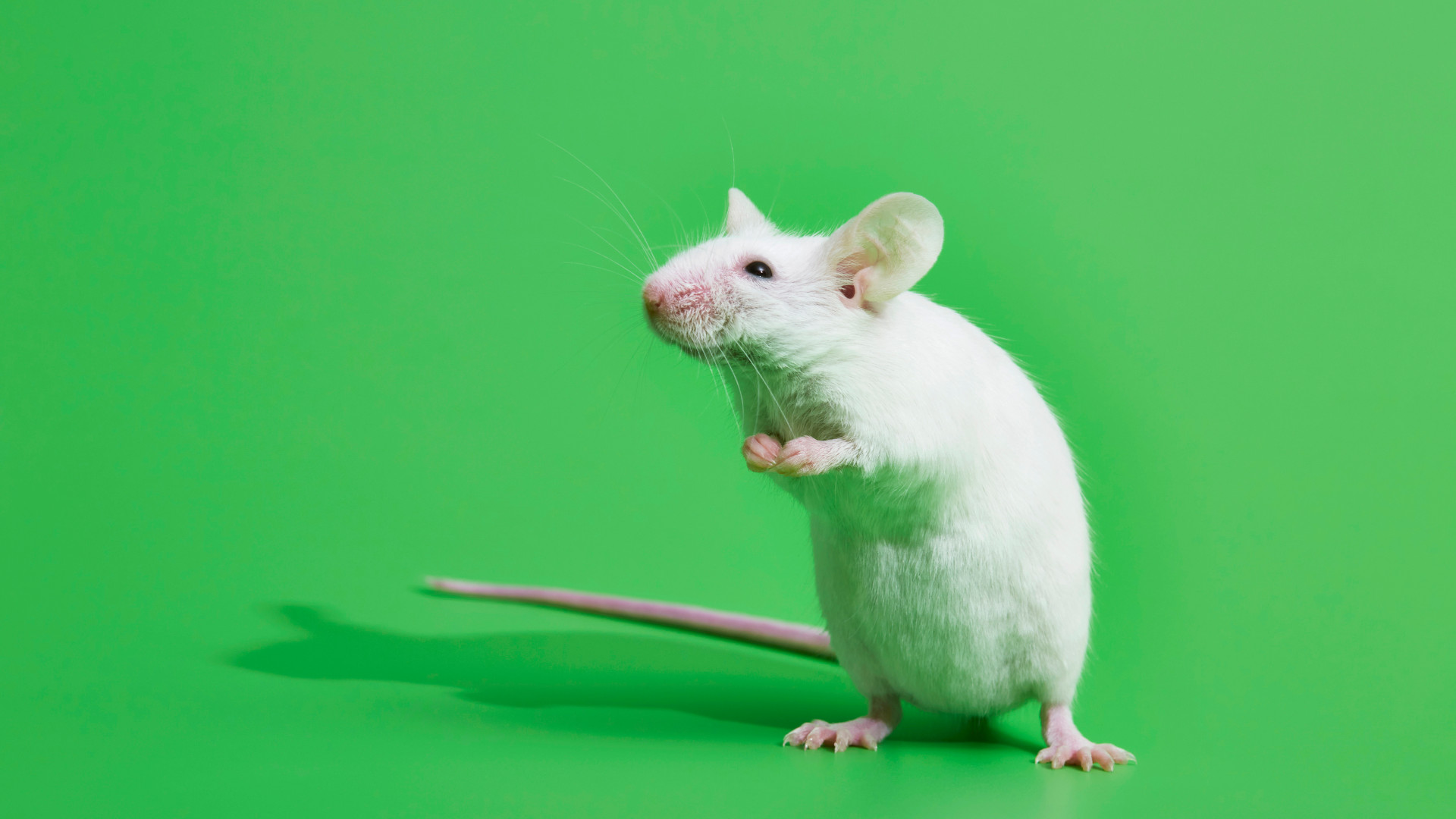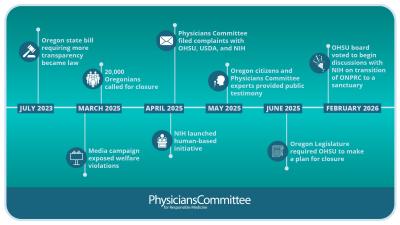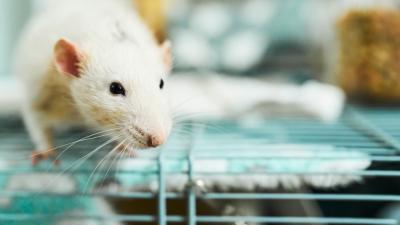Annual Funding Bill Passes With Language Supporting Nonanimal Approaches

The Fiscal Year 2026 Continuing Appropriations Act became law on Nov. 12. In addition to reopening the federal government and modernizing the FDA’s evaluation process for over-the-counter drug ingredients through nonanimal approaches, the legislation approved full-year funding levels and directives for multiple government agencies, including the Food and Drug Administration (FDA) and the Department of Agriculture (USDA). Several provisions directing these agencies to adopt ethical, human-specific methods were included after many months of advocacy by the Physicians Committee.
The language described below are steps that Congress now expects the agencies to take toward reducing and replacing animal experiments with improved scientific methodologies that better represent humans.
Advancing Nonanimal Methods Across the FDA
Congress included language recognizing the value of nonanimal methods as cost-effective, reliable, and human-relevant tools for assessing drug safety and efficacy. Importantly, the FDA is now directed to take several key actions to integrate these methods in place of animal experiments.
The bill instructs the FDA to revise regulations that set testing requirements for drug companies to clarify that animal tests are not required to support clinical testing in humans, addressing regulatory barriers that prevent improved adoption of nonanimal approaches. The agency must also report to Congress on these regulatory changes and provide an update on progress toward implementing recommendations from the FDA Science Board.
Scientists are increasingly recognizing the problems with animal experiments—they can mislead drug development, delay medical advances, potentially harm clinical trial participants, and require imposing significant suffering on animals. Over recent years, the FDA has taken important steps toward supporting the use of nonanimal methods in regulatory evaluation, through the 2024 recommendations from the Science Board to the FDA in driving integration of nonanimal methods, and the 2025 Roadmap to Reducing Animal Testing in Preclinical Safety Studies. However, many FDA regulations still require animal data, and nonanimal initiatives have historically lacked coordination, staffing, and accountability.
This language will help ensure the FDA implements its transition plans swiftly and systematically and updates its regulatory framework to explicitly allow for human-specific approaches in drug development.
Removing Barriers to Horseshoe Crab Blood Alternatives
Language was included in the FDA’s funding bill that addresses a specific type of testing required in the manufacturing of pharmaceutical products. Congress has directed the FDA to update an outdated policy document on endotoxin testing to clearly allow for nonanimal approaches that are scientifically reliable and more sustainable.
Endotoxins are a potentially deadly bacterial contaminant, and every batch of injectable medical products must undergo testing to ensure it is free of endotoxins. The common endotoxin test that is default-accepted by the FDA uses blood from horseshoe crabs, which requires capturing, transporting, and bleeding these marine animals. Reliance on horseshoe crabs for biomedical testing has decimated populations, and in turn, threatened other wildlife that depend on them. It also creates supply chain insecurity for this essential safety test.
Synthetic technologies can now replace the use of horseshoe crab blood, but policy barriers are preventing the adoption of improved synthetic endotoxin test methods by industry. This appropriations language will ensure the FDA makes an important policy update to its guidance on endotoxin testing, which will indicate to industry that synthetic methods can be used as an equivalent option to the horseshoe crab method.
Transitioning to Human-Specific Nutrition Research
The USDA’s funding bill includes language directing the Agricultural Research Service (ARS) to report on steps it can take to move away from animal use in human nutrition research. ARS is the USDA’s principal research arm and oversees six Human Nutrition Research Centers (HNRCs).
A Physicians Committee analysis found that the HNRCs have spent tens of millions of taxpayer dollars on animal experiments intended to study diet and disease. These studies are poorly suited for human nutrition science because animals do not naturally develop conditions such as cardiovascular disease or diabetes in ways that meaningfully reflect human physiology. As a result, these experiments can kill countless animals, duplicate well-known human findings, mislead research, and waste federal resources.
Nonanimal approaches—such as clinical studies with human volunteers—can safely and effectively answer the same research questions. With this new directive, ARS is expected to outline how it will reduce its use of animals and shift toward scientifically stronger, human-specific methods.
The Physicians Committee will continue working to hold the agency accountable for making these changes.
Looking Ahead
This progress in the FDA’s and USDA’s funding bill reflects years of advocacy and momentum built by the Physicians Committee and significant developments in nonanimal science and technology. The Physicians Committee will continue to engage in legislative opportunities to ensure policies guiding research and testing are keeping pace with the best science, encouraging the replacement of animal experiments through human-specific approaches. We appreciate Congress’s support of these important provisions.







